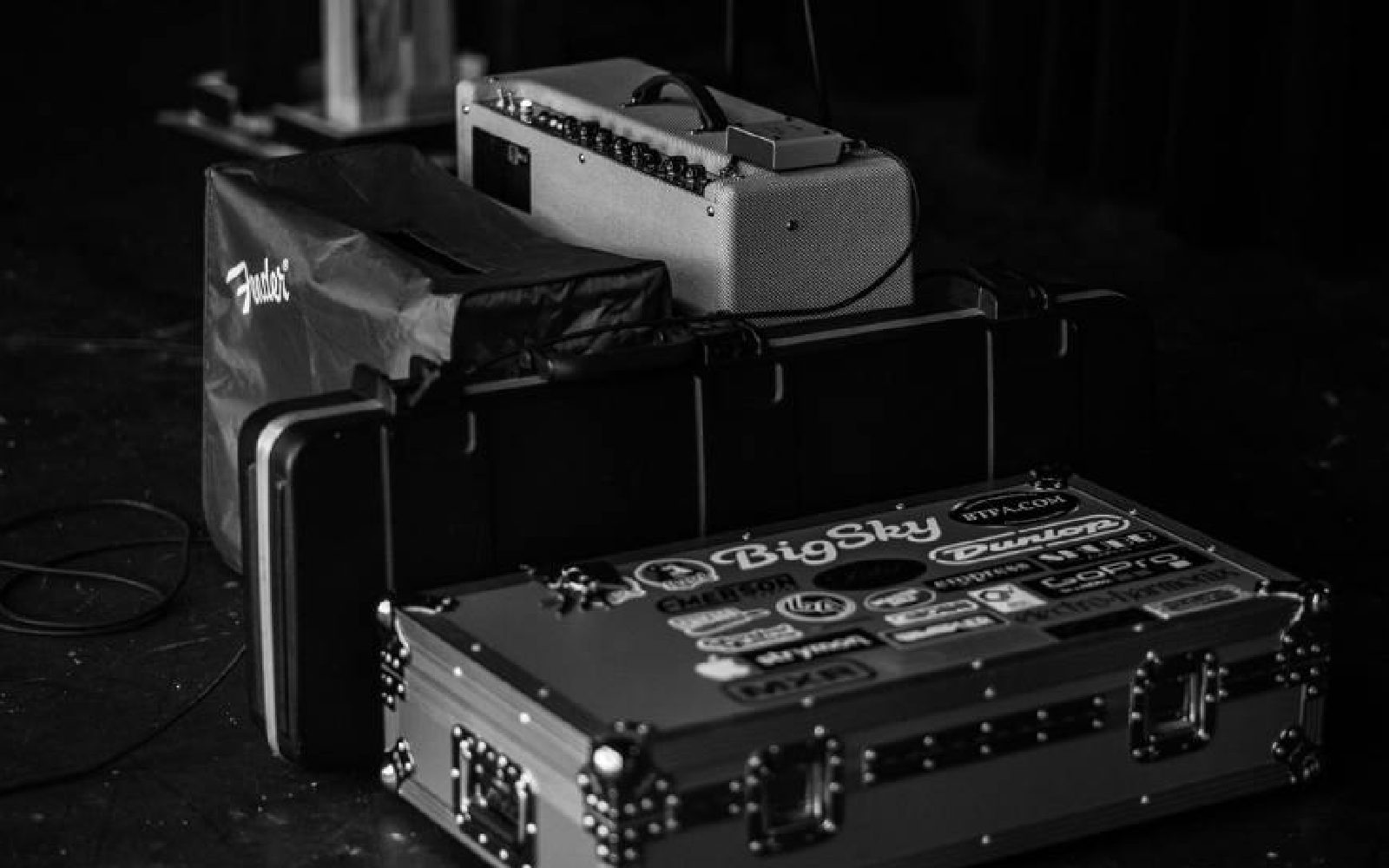A gig can be as dreamy or nightmare-ish as you make it! Ensure you're prepared.
Obviously, as a bass guitar player, you’ll need to take at least one instrument. One of the (many) great things about bass is that we don’t typically break as many strings as guitarists, so we can often get away with just one bass guitar. Having said that, there is an extra feeling of comfort knowing you’ve got another bass on hand for tonal variety or as a backup if needed. Always remember to keep your instruments in good working order – action, intonation, hardware, electronics all working as they should. Tuning, action and intonation especially can make your playing sound better and make your instrument easier to play (plus engineers, other band members, etc. will appreciate it too!)
Read up on all the latest features and columns here.
Strings, leads, picks
Again, these are pretty self explanatory, but I can’t stress the importance of them enough. Have a spare instrument lead at least, and if you’re running pedals or a pedalboard, have multiple spares plus some extra patch leads. Extension cords and a power board also commonly pop up as a necessity, especially on tight stages or interesting venues where power points aren’t always easily accessible. Nine volt batteries are super handy as backup power for pedals and tuners or active basses.
A handful of these breakables are always good to help you focus on your playing! More than once have I felt the sudden pang of an intrusive thought of a string breaking, pot crackling or lead carking it and have found myself unable to focus o the task at, and under, hand.
Many leads carry a lifetime warranty, but you can bet your bottom dollar that if you ever need to cash in that warranty, it’ll be after a gig mishap.
Tools, textas, tape
Pliers, wire cutters and screw drivers are all worth having on hand, and many companies (music companies and otherwise) make great multi-tools with plenty of attachments, sizes and fittings that can get you out a tight spot when required. Gaffer tape – let me say no more! A tuner – or even a couple of them. There’s no excuse for not being in tune these days. Stands are also a winner, especially in the studio, at a gig using multiple instruments, or on dark stages where there isn’t room to leave your bass guitar sitting around. As clunky as it can be to lug around, there’s nothing worse than a bass sitting precariously up against an amp or in a case in a tight corridor with people bustling past.
Things like tape can be great for labelling, attaching, sticking and fixing equipment, cables and instruments in a pinch. You’ve only got to get through one set and you’re home free!
A bit of tape for labelling can be a great last minute piece of security too, the stage gets awfully dark once the stage lights go down and if something gets unplugged you’ll want to know exactly where to plug it back in. While we’re at it – add a torch to your kit and you’ll be sorted!
Rig
It’s not always feasible to have multiple rigs and/or take them to a gig/rehearsal/session. So at the least, make sure your rig is in good working order and that electronics are serviced and running as they should. That dodgy pot that you have to spin a few times to get working or the cab that needs a wiggle to get the jack working? Get them looked at.
You might be surprised – they might be a small/easy fix and save you extra headaches in the future. Otherwise, spare head to cab leads (of different varieties – speakon/jack, etc.) and spare IEC leads. If you do have the luxury of having a backup rig (or an alternative for recording,) there is an abundance of small heads, pre/power amp/DI options that can easily tuck into a gig bag or the boot of a car if needed.
Additions like a preamp pedal with an XLR an be a lifesaver here. While not always ideal to run direct to FOH (front of house), it’s a great solution to have available if your main rig fails! Have it set up and ready to go, so a mix engineer can seamlessly switch to the direct signal if all else fails!
Watch more videos about compact bass guitar rigs here.

